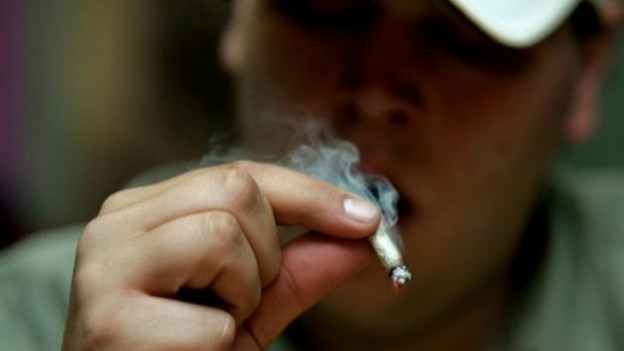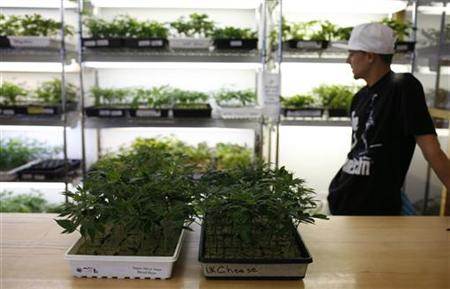News
Colorado’s Legalized Marijuana Initiative has 15 Days to Collect Approximately 2500 Valid Signatures
Colorado pot-legalization initiative needs more signatures
Posted: 02/03/2012 07:34:43 AM MST
Updated: 02/03/2012 02:15:16 PM MST By John Ingold
The Denver Post
A proposed initiative to legalize limited possession of marijuana in Colorado needs more signatures to qualify for the ballot.
The Colorado Secretary of State’s office announced today that the campaign collected only 83,696 valid signatures. It needs 86,105 to qualify.
The campaign will now have 15 days to collect the remaining 2,409 valid signatures. Mason Tvert, one of the initiative’s proponents, said in a statement today that the announcement was unexpected but “just a very small bump in the road.”
“We are confident we will complete this process successfully and qualify the initiative for the ballot,” Tvert said.
Last month, the campaign turned in more than 160,000 signatures in boxes of petitions. But, after reviewing a sample of those signatures, the Secretary of State’s office could not conclusively project whether there were enough valid signatures on the petitions for the initiative to qualify.
That meant the Secretary of State’s office needed to go line-by-line through the petitions, verifying each signature. Today was the deadline to complete that task.
The initiative, a proposed constitutional amendment, would legalize possession of up to one ounce of marijuana for people 21 and older. It would also allow people to grow a small number of marijuana plants in their homes.
The measure would also allow for people to open marijuana retail shops, but it would give communities the ability to ban those businesses. Lastly, it would legalize the growing of industrial hemp.
All such activities would remain illegal under federal law.
The initiative — for now known as Proposed Initiative No. 30 and dubbed by the campaign The Regulate Marijuana Like Alcohol Act of 2012 — is one of three separate proposed measures for the 2012 ballot that would legalize marijuana in Colorado.
Another, from Cannabis University of Colorado head Michelle LaMay, would prohibit judges from imposing penalties on anyone for marijuana possession of any amount. Supporters call the initiative The Relief for the Possession of Cannabis Act. The campaign behind it has announced it will begin collecting signatures this month.
Meanwhile, a third initiative was filed Thursday. That measure, which supporters call Legalize 2012, would create in Colorado’s constitution a fundamental right to use and possess any amount of marijuana for people over 18. It would allow for retail sales of marijuana “without restrictions that are onerous or burdensome.” It would require the state attorney general to file lawsuits to prevent the federal government from enforcing federal marijuana laws in Colorado. And it would create a state-funded commission that could help Colorado citizens facing federal marijuana prosecution with their defense.
That initiative has not yet had its first administrative hearing.
Read more: Colorado pot-legalization initiative needs more signatures – The Denver Post http://www.denverpost.com/breakingnews/ci_19885405#ixzz1liVKPtHX
Read The Denver Post’s Terms of Use of its content: http://www.denverpost.com/termsofuse
Feds Target Financial Institutions Associated with Medical Marijuana Clinics
Feds Target Financial Institutions Associated with Medical Marijuana Clinics
NYTimes.com
By SUSANNA KIM
Oct. 26, 2011
In its effort to shut down California’s booming medical marijuana dispensaries, the Justice Department is seeking to seize the property where the clinics are based, even going after at least one bank that holds the mortgage on a clinic.
Chase bank received a letter to evict the Marin Alliance for Medical Marijuana, according to Greg Anton, attorney for the clinic. The bank owns the note on the building in Fairfax, Calif.
According to Anton, the bank received a similar letter from U.S. attorney Melinda Haag for the northern district of California that was sent to the Alliance’s landlord on Sept. 28 and other medical marijuana dispensaries. The letters threatened that unless the owners evicted the cannabis clinics within 45 days, they could face criminal action.
Anton said he obtained a copy of the letter to JPMorgan Chase through the clinic’s landlord, as reported by the Bay Citizen.
A spokesman for JP Morgan Chase said he had no comment and would not confirm whether the bank received a letter from the U.S. attorney.
The Justice Department announced on Oct. 7 it is cracking down on the illegal distribution of marijuana in four federal districts in California, which has had a growing cannabis industry since legalizing medicinal marijuana in 1996 through Proposition 215.
A spokesman for the U.S. attorney in the state’s Northern district said he could not comment on who received letters.
The U.S. attorneys for Sacramento, San Francisco, Los Angeles and San Diego revealed enforcement actions against at least 16 cannabis distributors in those federal districts. Deputy Attorney General James Cole said the department will not focus the investigation on individual patients with serious illnesses like cancer or their immediate caregivers.
Lynnette Shaw, owner of the Marian Alliance for Medical Marijuana, which calls itself the oldest medical marijuana dispensary in the state, said her landlord is planning to evict the business from the premises, though Shaw is hoping to obtain a court order or even an executive order that would bring a temporary stay on the U.S. Attorneys’ actions.
Shaw said she has obeyed all state laws for 15 years and never diverted medicine for non-medical purposes or sold out of state.
But she and her landlord, who she has been supportive since the time the clinic launched, are fearful of the Justice Department’s threats.
“My landlord is terrified, I would never do anything to endanger him,” Shaw said. “Now he’s asked us to remove marijuana from premises.”
On Tuesday, state and local legislators gathered with clinic owners in San Francisco prior to President Obama’s fundraiser event, calling on the president to intervene.
“This destructive attack on medical marijuana patients is a waste of limited law enforcement resources and will cost the state millions in tax revenue and harm countless lives,” California Assemblyman Tom Ammiano said. “President Obama needs to reverse this bad policy decision and respect California’s right to provide medicine to its residents.”
Aaron Smith, executive director for the National Cannabis Industry Association, said, “President Obama needs to immediately reign in the Justice Department for defying his administration’s stated policy to respect state medical marijuana laws.”
The Justice Department’s action places into question marijuana-related activities in 15 other states and the District of Columbia, which have legalized medicinal marijuana in some form.
Kevin Sabet, former Senior Policy Advisor to President Obama’s Drug Czar, Gil Kerlikowske, and currently a consultant to drug prevention and policy organizations, said financial institutions that deal with medical marijuana organizations should be on alert.
“Smoked marijuana remains illegal in all states, and federal law — while recognizing certain components of marijuana as having medicinal value — does not allow the whole marijuana plant to be smoked for any purpose, including purported medical purposes,” he said.
Sabet also warned that all states with legalized medical marijuana should pay attention to the enforcement actions in California.
“Remember, all actions have to be approved by Attorney General Holder, so it’s hard to imagine that California would be the only place the Department of Justice is focusing on,” Sabet said.
While dispensaries outside California have not received similar letters from the Justice Department, some have been audited by the IRS for taking business deductions that were related to “trafficking in controlled substances.” The IRS can penalize cannabis dispensaries based on section 280E of the tax code, passed during the Reagan administration in 1982, which prohibited drug dealers to take any deductions based on trafficking activities.
Jill Lamoureux, chairwoman of the National Cannabis Industry Association, said she knew of one audit in Colorado, the details of which are confidential. She said the deductions were accepted an no additional taxes or fines were assessed.
“If the IRS determines across the board that this industry cannot take standard business deductions it will severely limit the ability of these businesses to thrive serving patients and contributing to our state’s economies desperately in need of new growth industries,” Lamoureux wrote in an email to ABC News.
Sabet said the federal government is sending a message that the “rush” in the medical marijuana industry is “over.”
“People – including drug dealing organizations – flocked to the promise land of California thinking they could get rich off of this grey market, but the federal government is now reminding folks that there’s nothing grey about marijuana markets,” Sabet said. “‘Marijuana is an illegal drug and we take it seriously,’ is the message they seem to be sending.”
Tunnels are Tijuana
Raids Don’t Keep Tunnel City From Humming Underground
Tony Cenicola/The New York Times
The authorities on Thursday presented the results of a raid in Tijuana: bricks of marijuana and a smuggling tunnel into California.
By DAMIEN CAVE
Published: December 1, 2011
TIJUANA, Mexico — Squatting and sweating inside the latest drug tunnel found here in this Pacific border city, it was easy to understand the amazement expressed by Mexican and American officials. This one was a stunner.
A motorized cart on metal rails ensured quick passage.
The tunnel ran for almost half a mile, with wooden planks holding off the earth on all sides. Energy-saving light bulbs illuminated the route. A motorized cart on metal rails ensured quick passage, while a steel elevator hidden beneath the floor tiles in a warehouse made the 40-foot descent to the tunnel’s entrance feel like the slow drop into an unregulated mine shaft.
And yet, here is the simple fact obscured by superlatives like “the most elaborate” and “the most sophisticated,” which officials seem to lather on each new find.
Tunnels are Tijuana. They have become an inevitable, always-under-construction or always-operating part of city life, as entrenched as cheap pharmacies and strip clubs.
Residents now shrug them off. “If you have a lot of money, you can do anything,” said Blanca Samaniego, 36, as she walked by the warehouse where Mexican officials unveiled the tunnel on Wednesday. “It will never change. It will never stop.”
The ground beneath her neighborhood in the hills — near the airport and the upgraded, shimmering border fence patrolled 24/7 by American agents — has been punched full of holes for years. Almost every kind of building has been used to hide a logistical operation that is as much about the American taste for a high as it is about the low-down removal of dirt.
Just a few weeks ago, below a more rudimentary warehouse nearby, the authorities found a different tunnel with an elaborate ventilation system. A few blocks from that, there sits an empty flophouse, where thick concrete now caps a passageway discovered by the authorities last year. Farther east, residents note a tunnel found in 2008, and just past the next major intersection, there are two more: one under a small home and the other below a bodega across from a factory.
Other tunnels have been found downtown, near the main border crossing. Wherever there is a border fence climbing high, there seems to have been an attempt to burrow below, usually to a parking lot in California where drugs can be hauled through a manhole cover, or to a business that almost looks legitimate.
In the latest case, the tunnel ran to Hernandez Produce Warehouse, a fruit and vegetable company in California whose only product seemed to be green and best when smoked.
Luis Ituarte, 69, an artist who runs a gallery here called La Casa del Túnel — where a tunnel was found about decade ago — said that Tijuana officials would be smart to move beyond publicizing their subterranean finds and then shutting them down. He argued that Tijuana should capitalize on its historic identity as a city that has been serving up vice since 1907, when President Porfirio Díaz legalized gambling, or 1920, when the United States made alcohol illegal.
“Las Vegas, Tijuana and Havana were all built by the same kind of people,” Mr. Ituarte said. “Only Vegas has taken on its bad reputation.”
Not that this is the direction things are heading. The mayor here recently rejected demands from cultural groups asking to take over La Ocho, a notorious prison that had been decommissioned.
Mexican Army officials, during a tour of this week’s elaborate tunnel, mostly focused on the triumph of the discovery.
“These are achievements that increase public security,” said Gen. Gilberto Landeros, standing at the tunnel entrance as local reporters took snapshots of one another in front of the long, dim hole. “We’re pounding at the economy of narcotrafficking.”
At the very least, he had a lot of marijuana to point to. Hefty bricks of the stuff, wrapped tightly in orange and green plastic, surrounded him when he announced the discovery of the tunnel inside the empty warehouse here in Tijuana. The total haul, from both sides and a truck driven from the site in San Diego, was 32.4 tons, with a street value of about $65 million — a new record for a tunnel-related seizure, according to American officials.
Harder to see, unmentioned, but easy to imagine: how many tons moved across before that load was found.
The evidence around the tunnel — worn-out soccer cleats, dusty oscillating fans, empty water bottles — suggested that the operation had been going for months, a supposition Mexican officials did not deny. At that rate, hundreds of tons of marijuana worth hundreds of millions of dollars would have moved through this one tunnel during its life span.
Most likely somewhere nearby, in another tunnel, the flow continues. The next announcement and news tour may be only weeks away.
California Pot Advocates Take Their Case to Courts
“Medical marijuana advocates take their battle to the courts”
By Peter Hecht
phecht@sacbee.com
By Peter Hecht The Sacramento Bee
Published: Thursday, Nov. 10, 2011 – 12:00 am | Page 1A
Last Modified: Thursday, Nov. 10, 2011 – 12:10 am
Copyright 2011 The Sacramento Bee.
They are the public face of a litigious battle to redefine federal authority on medical marijuana.
With emotion and printed placards – “Marijuana is medicine, Let states regulate!” – about 200 people protested at the U.S. courthouse in Sacramento Wednesday against a federal crackdown on California dispensaries and property owners leasing to medical cannabis businesses.
But the real action may result from five lawsuits filed in recent days against U.S. government officials, including Attorney General Eric Holder, California’s four U.S. attorneys and President Barack Obama’s director of national drug control policy.
The suits assert that federal prosecutors are violating equal protection laws and states’ rights, and constitutional protections for in-state commerce. The ultimate goal may be to force the government to negotiate a settlement that spells out what it will tolerate in California and other states permitting medical marijuana use.
“We would like to get a rational dialogue going with the federal government about how to handle medical cannabis in California,” said Matt Kumin, a lead attorney in lawsuits filed in each of the state’s federal judicial districts. The suits seek injunctions to stop the seizure of properties of landlords leasing to medical marijuana operations.
A fifth suit, by the advocacy group Americans for Safe Access, seeks to bar federal actions “to dismantle the laws of the state of California.”
Don Heller, a former Sacramento federal prosecutor, said the suits could force a definitive answer by the U.S. Supreme Court on the issue of federal “supremacy and states rights and who shall prevail with respect to marijuana.”
“It has been nibbled at and now it really should be decided,” he said.
In an announcement last month, U.S. prosecutors broadly asserted that dispensaries in California are profiteering in violation of both federal and state law. They’ve brought charges that some bad actors have trafficked medical marijuana out of state or pocketed millions of dollars from cultivation operations for marijuana stores.
U.S. Attorney Benjamin Wagner in Sacramento said in a statement Wednesday that California prosecutors “will continue to enforce federal narcotics laws, unless and until ordered to do otherwise.”
In contrast, marijuana advocates are suing on behalf of people such as Ryan Landers of Sacramento, who uses medical marijuana for symptoms of AIDS, or Briana Bilbray, a cancer patient who uses cannabis and the daughter of San Diego Republican Rep. Brian Bilbray.
The suits also challenge threats to seize properties of landlords who rent to dispensaries, including the El Camino Wellness Center, one of Sacramento’s leading medical marijuana outlets, or the Marin Alliance for Medical Marijuana, California’s longest operating medicinal cannabis provider.
Kumin said plaintiffs want to know why the federal government has taken little action in Colorado, which permits a heavily regulated, for-profit medical marijuana industry, while launching aggressive actions in California.
The government’s stance is that all marijuana – medical or otherwise – is illegal under federal law. But Kumin said the Colorado model suggests California may be able to negotiate standards for medical marijuana distribution that would ward off federal intervention.
Santa Clara Clara University law professor Gerald Uelmen said a U.S. Supreme Court battle is unlikely to produce positive results for the medical marijuana movement.
Uelmen unsuccessfully argued a 2001 case for the Oakland Cannabis Buyers Club, in which the Supreme Court ruled no “medical necessity” exempts marijuana from federal law. In 2004, the court rejected California medical user Angel Raich’s claim that federal marijuana laws intruded on constitutionally protected state commerce.
But Uelman said legal actions may force the government to negotiate with the advocates.
Uelmen represented the Santa Cruz Wo/Men’s Alliance for Medical Marijuana (WAMM) in an eight-year battle against federal authorities after a 2002 raid on the pot garden of a colony of severely or terminally ill patients. It resulted in a 2004 ruling permitting the group to grow marijuana and a 2010 agreement to drop the suit on the condition the government would no longer raid the garden.
Uelmen said authorities may be less accommodating for dispensaries the government views “as a ploy to run commercial operations to sell marijuana.”
In a parallel effort to the lawsuits, advocates are drafting a ballot initiative for statewide regulation of California’s medical marijuana industry, hoping it may diminish incentives for federal intervention.
California Board of Equalization member Betty Yee joined courthouse protesters Wednesday, decrying federal actions against dispensaries that she described as “responsible corporate citizens who pay state sales taxes.”
Kumin said he hopes the lawsuits can “enshrine” support for medical marijuana in California into federal law or policy. “We believe there are judges out there who are brave and ready to look at the utter contradictions,” he said.
Denver’s Platte River Valley a hub of medical-marijuana grow sites
Denver’s Platte River Valley a hub of medical-marijuana grow sites
By John Ingold
The Denver Post
Posted: 09/26/2011 01:00:00 AM MDT
Updated: 09/26/2011 08:10:43 AM MDT
About a year ago, Karen Cuthbertson, the head of the Athmar Park Neighborhood Association in Denver, began noticing discussions on the group’s Facebook page about skunks infiltrating the neighborhood.
What are we to do, the Athmar Park residents asked, about the influx of stinky beasts?
Cuthbertson, though, suspected blame for the new smells might best be placed not on skunks but on something thriving in the industrial areas on the neighborhood’s eastern boundary near the South Platte River: skunky marijuana.
“People think there is a skunk problem,” she said. “I’ve said, ‘Perhaps it’s not skunks.’ ”
Such is life in Colorado’s cannabis belt.
To the list of agricultural regions of Colorado that includes the San Luis Valley and the Grand Valley, add the South Platte Valley right through the heart of Denver.
Newly available data from the state show that a ribbon of land on either side of the river, starting just below West Evans Avenue and ending just above Interstate 70, is home to more than 250 large medical-marijuana cultivation sites, more than any other location in the state.
In a 1-mile radius around the intersection of Interstate 25 and West Sixth Avenue, there are about 120 “grows,” according to an analysis of the data by The Denver Post.
There are 462 growing facilities in the city and county of Denver that have applied for a state license, according to the state’s data. Statewide, there are 1,114 grows.
All the cultivation facilities must be linked to either a dispensary or a maker of marijuana-infused products, of which there are just more than 1,000 in the state, according to the latest numbers. Some businesses have multiple growing sites.
Addresses of the growing facilities were kept confidential until the legislature passed a law, which took effect this past summer, making them public. Still, the grows have largely remained incognito.
Most are tucked into nondescript warehouse spaces, surrounded by electrical-supply companies and businesses that sell countertop granite. None has a sign out front. And aside from the occasional skunklike scent of budding marijuana, it’s hard to know they’re there.
Cuthbertson said she hadn’t heard any specific complaints about grows in Athmar Park, noting that, because the city requires them to be in more industrial areas, they are largely separate from the neighborhood’s residential sections.
A Denver police spokesman declined to talk about whether the grows are trouble spots, worried in part that discussing their locations could make them targets for criminals.
“I have had no complaints in my district, and I have quite a few grow operations,” said Denver City Council President Chris Nevitt, who represents a swath of southeast and southwest Denver. “Frankly, they have been a godsend. They are filling a lot of empty commercial space and warehouse space.”
But not everybody is as thrilled with the grows.
Councilman Paul Lopez, who represents west Denver, said it is important to keep the grows contained to the industrial areas and not crowded in any one spot, so as not to prevent other development opportunities.
“We’re keeping an eye on it,” he said. “We’re keeping watch so that it doesn’t create an undue overproliferation in our neighborhood.”
Councilwoman Judy Montero, who represents north and central Denver, went a step further, suggesting that the presence of grows in some areas might need to be re-evaluated as those areas look to redevelop.
“I don’t see the uses of medical marijuana grow facilities being consistent with our land- use visions for the future of these communities,” she wrote in a prepared statement.
Such a clash has already occurred in Montero’s district, when developer Mickey Zeppelin complained about a large marijuana-growing warehouse off of Brighton Boulevard — across the river from one of his developments. The grow’s operators responded by threatening a lawsuit against Zeppelin for allegedly making it difficult to sublet space in the warehouse to other growers because of the publicity.
It is unclear whether a suit was ever filed, and Scott Turner, the general manager of Grass Roots Health and Wellness Center, said he couldn’t talk about the ongoing legal battle. But he said the grow hasn’t generated any complaints from other neighbors.
“We’re spending our money at the local businesses,” Turner said. “We’ve made a lot of good friends in the neighborhood.”
John Ingold: 303-954-1068 or jingold@denverpost.com



